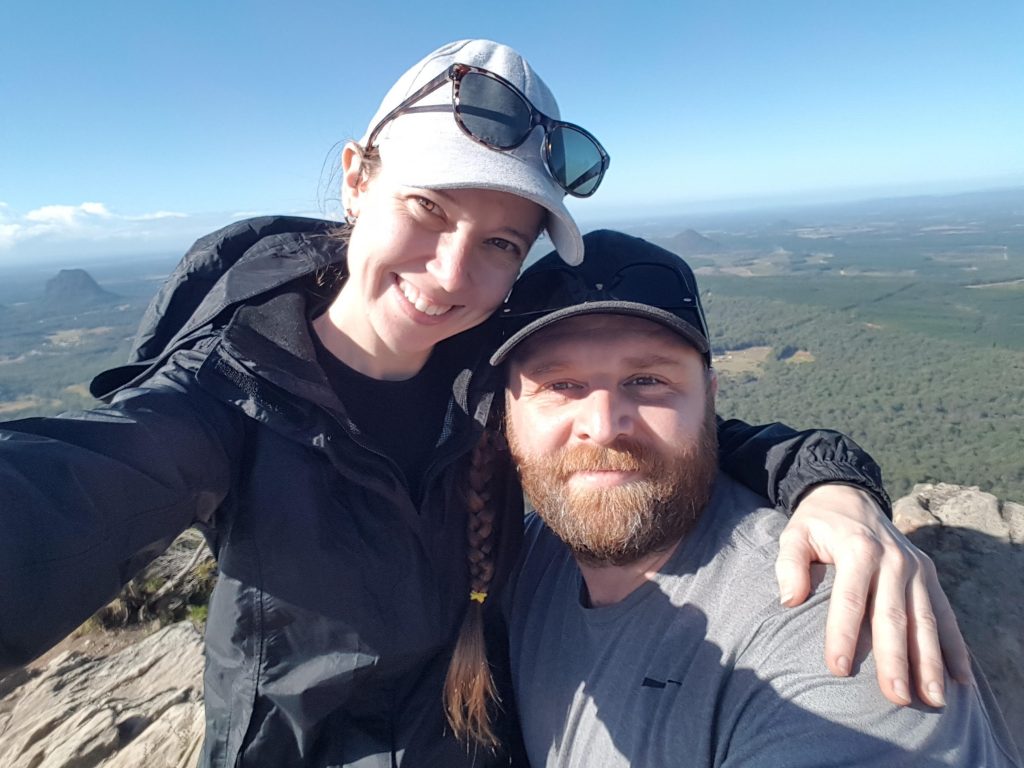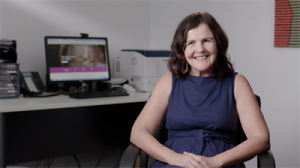After more than a decade consumed by secretive eating disorders, Tanya Kretschmann is relishing her second chance to be “present” in her life.
From primary school until her mid-20s, eating disorders ravaged Ms Kretschmann’s mind and soul as she used food abstinence to cope with anxiety and depression.
It started at age 12 when skipping lunches became her way of dealing with waves of anxiety that affected her at school.
The eating disorders – which included phases of anorexia, bulimia and binge eating – kept hold of her until she was 25 and she could finally declare herself a survivor.
At different stages of the disease, Ms Kretschmann says, she did not physically resemble what people would expect of someone who battled with food which was why she could hide her problem well.
“I lived in a healthy body size when I was most medically and mentally unwell,” she said.
Eating disorders consumed her mind to such a degree that her memories of that period are blacked out by food.
“My eating disorder was at the wheel and I have no memories or milestones that I remember,” she said.
“Now that I’m recovered, I’m present for moments of my life now. I can be part of my life now rather than sitting on the sidelines.”

Psychiatrist Dr Fionnuala Dunne, from Buderim Private Hospital, said eating disorders were becoming more prevalent, especially among teen females, and affect about four per cent of the population, or one million Australians.
The hospital treats about 250 eating disorder patients a year, with around 20 per cent requiring hospital admission.
Anorexia is the most well-known but the most common is binge-eating which is consuming large amounts of food, often in a short space of time and even when not hungry.
Help keep independent and fair Sunshine Coast news coming by subscribing to our free daily news feed. All it requires is your name and email. See SUBSCRIBE at the top of this article
Dr Dunne said about half the people with eating disorders have binge eating.
Another 12 per cent have bulimia and some 38 per cent have other eating disorders which include atypical anorexia (similar to anorexia but without the low weight) and avoidant/restrictive food intake disorder which often stems from cutting out whole food groups.
Dr Dunne said emerging research was finding genetic predispositions to eating disorders but the most common trigger was people going on a diet.
“Personality, culture, environment and other factors all load the gun of eating disorders but it’s the diet that pulls the trigger,” Dr Dunne told sunshinecoastnews.com.au
In Ms Kretschmann’s case, the trigger for her disease was not related to keeping her weight down or body image issues.
Hers manifested from not understanding her anxiety and was a way of managing the distress and high emotions that overwhelmed her at school.
“(In primary school) I was quite comfortable eating at home with my family and I’d have breakfast in the morning but at school I was not hungry because I was anxious,” she said.
“I would have bubbles in my tummy and I wouldn’t do little lunch or big lunch and I started skipping meals at school.
“I was a quirky kid who was super anxious and I was a small child so I don’t think it appeared unusual that I wasn’t growing and developing.”
Ms Kretschman became a master at hiding her disorder – often saving food wrappers to make it appear like she had eaten, or discarding meals when people weren’t looking.
Her eating disorder began to “flourish” in high school when she became aware that her way of being was very different to her peers.
“I became even more secretive and private because I felt like I didn’t fit in and didn’t want to stand out,” she said.
When she graduated and moved out of home, it was easier to hide her condition from family and friends and the problem grew roots.
“I lived with an eating disorder for an incredibly long time and if there’s one important thing I would like to get across it’s the importance of reaching out early before it takes too much of a hold and thought patterns are engrained,” she told sunshinecoastnews.com.au
“Anyone struggling with their relationship with food needs care then and there, not to wait until it reaches a certain point.”
It was Ms Kretschmann’s housemate who eventually intervened and she was “dragged kicking and screaming” to the GP for what would still be many years of riding the rollercoaster to wellness with clinical therapy and treatment.
Part of the struggle of getting well was dealing with the uncomfortable feeling of food in her belly, digestion and sensations that felt “physically overwhelming”.

But eventually, when she was 22, she experienced a true moment of life – going out to dinner with friends – which gave her first glimpse of what it would feel like to be recovered.
“I remember choosing something from the menu and eating the meal and being present and I went home and slept and did something that I never thought was possible – to be able to experience life,” she recalled.
That is how she lives today – being present in her life and making and storing memories; going out for coffee, enjoying sport without over-exercising, dreaming of things other than food.
“They’re the small moments,” Tanya said.
“I haven’t put a fullstop at the end of my recovery but I feel confident in my ability to manage it.”
Eating disorder hospital admissions on the rise

Psychiatrist Dr Fionnuala Dunne said inpatient treatment for eating disorders was on the rise and has offered advice to educate people on the illness.
Dr Dunne has urged intervention as early as possible, emphasising that the longer the disease was left unchecked the harder it was to recover.
“Generally the things to look out for are losing 10 per cent of body weight, stopping menstruation as a result of a restricted food intake, and engaging in behaviours such over-exercising and purging or vomiting,” Dr Dunne said.
“The actual trigger for anorexia is dieting so I would strongly urge parents to never put their child on a diet, recognise the hallmarks of the disease and reach out for specialist support if they are worried,” she said.
“Because of the lack of flexible thinking associated with starvation, I think it’s the only disorder where somebody’s really sick and they still say, “I’m fine.”
“Starvation can affect every organ, and some of the common effects are when somebody stands up, they’re dizzy. That’s because due to muscle loss, the heart has to work harder to maintain their blood pressure. People can also get low blood sugar and that can lead to a health crisis.”
Dr Dunne said she believed everyone could play a role focusing less on weight and more on promoting positive body images.
“Eating disorders do seem to be increasing in prevalence which I think has to do with the dieting culture and the pressure on younger women to be slim,” she said.
“I think it’s important for parents to have a body positive attitude, foster open communication with their children and to be vigilant around any kind of restrictive food intake behaviours.”
“The good news is that there are very effective treatment programs for eating disorders and people can and do recover.”
The Buderim Private Hospital’s Cooinda Mental Health Service has inpatient and outpatient programs for mental health disorders including anxiety, depression, addiction, post-traumatic stress disorder and eating disorders.
Sunshine Coast University Hospital also has an Eating Disorders Service.





